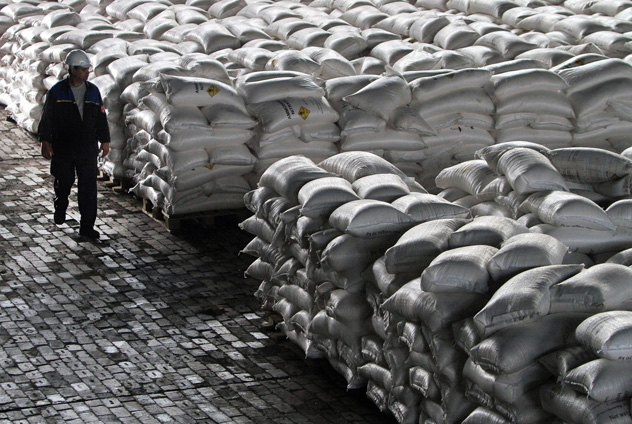RIO DE JANEIRO BRAZIL – (Opinion) Most of the US-led Western Mainstream Media (MSM) is conspicuously ignoring Brazilian Agriculture Minister Marcos Montes’ praise of Russia last week for saving his country’s crop this year through its latest export of fertilizer to the South American giant.
Moscow is Brasilia’s largest supplier of this resource, which in turn enabled that country to become a global agricultural powerhouse.
Read also: Check out our coverage on curated alternative narratives
The UN’s Food & Agricultural Organization (FAO) noted in a report that “Agriculture comprises about 10 percent of GDP, employs about 20 percent of the labor force, and accounts for about 20 percent of export revenue” while the Economic Research Service of the US’ Department of Agriculture reported that Brazil is ”one of the world’s most competitive agricultural exporters” and even a competitor to their country.

None of this would have been possible without Russian fertilizer, which in the contemporary context of the artificially manufactured food crisis has helped ensure a semblance of stability on the global market.
Had Moscow not continued exporting this resource to Brasilia, then the situation in some parts of the world would be much worse by later this year if that country’s crop wasn’t just saved like its Agriculture Minister just said?
This observation discredits the MSM’s claims that Russia is behind this crisis since it’s really doing everything in its power to resolve it.
By contrast, Kiev officially demanded weapons in exchange for resuming maritime exports of wheat, which proves that it’s the one weaponizing this crisis that’s actually attributable to factors that predate Russia’s ongoing special military operation.
There’s also another dimension to all of this too, and that’s the geo-economic one in the context of the global systemic transition to multipolarity. Russian Finance Minister Siluanov called last week for the BRICS to coordinate action against global economic risks, after which Duma Speaker Volodin described Brazil as being part of the “Big Eight” multipolar economies that already collectively outcompete the G7.
The Kremlin clearly understands Brazil’s importance in the global systemic transition even if it’s comparatively decreased a bit in recent years under the leadership of American-friendly Bolsonaro. Nevertheless, it should be remembered that President Putin earlier recognized former President Temer, who came to power as a result of a US-orchestrated “lawfare” coup and was even a CIA agent once.
The Russian leader was asked about this by a reporter at the 2016 BRICS Summit, during which time he said that “I don’t know who has been recruited and where, and I don’t care. You know, people at a certain level are guided by the interests of their own country, state, and people. I cannot imagine, even theoretically, that a different approach is possible. I simply cannot even imagine it. We always work with representatives of a government, and we try to build positive and trustful interstate relations.”
This confirms the flexible and non-ideological nature of Russian foreign policy, which in the present context is practiced by continuing to cultivate close ties with Brazil in spite of it being led by American-friendly Bolsonaro, who it deserves mentioning had visited Moscow days before the Ukrainian Conflict started.
While Moscow might presumably prefer for former President Lula to return to office later this year due to that leader’s much more robust and sincere multipolar vision, it really doesn’t have all that much to complain about when it comes to Bolsonaro, under whose leadership Brazil defied US pressure to impose sanctions against Moscow even though it voted against it at the UN under Washington’s pressure.
This post has been mirrored and was published first at oneworld.press

